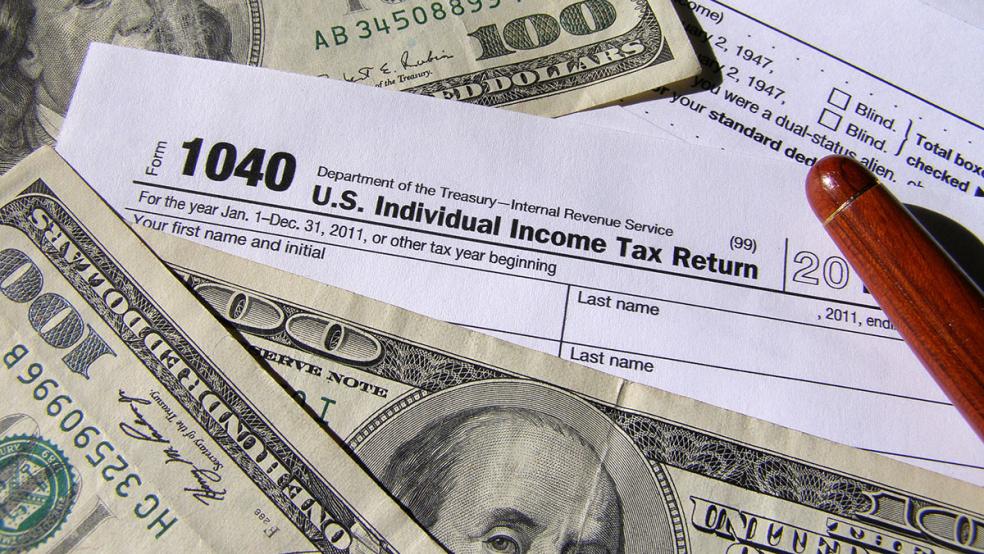The Internal Revenue Service ended this year’s tax filing season with a backlog of more than 35 million unprocessed returns, a four-fold increase over 2019, National Taxpayer Advocate Erin Collins said in a report to Congress Wednesday.
The 2021 tax season “was perhaps the most challenging filing season taxpayers, tax professionals, and the IRS have ever experienced,” Collins says in her report. The agency faced a “perfect storm” of challenges stemming from the Covid-19 pandemic and the relief efforts it was tasked with by Congress, including sending out three rounds of “stimulus checks,” or a total of about 475 million payments worth $807 billion. The agency also processed 136 million individual income tax returns and issued 96 million refunds totaling $270 billion.
“The IRS and its employees IRS and its employees deserve tremendous credit for what they have accomplished under very difficult circumstances,” Collins says in her report, “but there is always room for improvement.”
Breaking down the numbers: The unprecedented backlog of unprocessed filings includes nearly 17 million paper returns waiting to be processed, almost 16 million returns that require further review and another 2.7 million amended returns that have not been processed. The numbers are as of the end of filing season in May, and the IRS may have cut into its backlog since then.
Still, the number of returns awaiting processing has grown tremendously from 7.4 million in 2019 and 10.7 million in 2020, meaning that millions more filers likely have had to wait for their tax refunds. This filing season, 70% of income tax returns called for refunds, with an average refund of $2,827, according to the report.
Playing catch-up: Collins notes that new filings will slow dramatically now that tax season has ended and that IRS as of earlier this month had finished processing all Form 1040 returns from 2019 — yes, 2019 — leaving 800,000 business returns from 2019 to be manually processed.
That may be small consolation to taxpayers frustrated by their lack of a refund or by what the report calls a “historically low level of IRS telephone service.” The agency received more calls this tax season than ever before — more than 167 million, compared to an average of about 46 million for the prior three years. Only 9% of those calls were answered by a customer service representative, down from more than 20% the year before and 32% in 2018. Only about 3% of the more than 85 million calls to the Form 1040 support line were answered by a customer service agent.
“We can understand and articulate the challenges the IRS faced over the past year, but for individuals and businesses that waited nine months, 12 months, or longer to receive their refunds, the reality of the long delays was incomprehensible and in many cases, financially distressing,” the report says. “Taxpayers cannot experience similar challenges in future filing seasons. We cannot allow the agency to face the staffing and technology limitations it has experienced this past year. Americans deserve better.”
Changes ahead: The report comes as President Joe Biden and Democratic lawmakers look to task the IRS with even more responsibilities, including sending out monthly Child Tax Credit payments and ramping up enforcement efforts to curtail tax avoidance by the wealthy and corporations.
Biden has proposed boosting the IRS budget by $80 billion over 10 years, with much of the money going toward stepped-up enforcement, and his bipartisan infrastructure deal with senators calls for as much as $40 billion in additional funding for the agency. While those funding increases haven’t been enacted, House Appropriations Committee Democrats last week proposed a $1.7 billion increase in the IRS budget for 2022. IRS funding fell by 20% in inflation-adjusted terms from 2010 to 2019 and its staff shrank by 22% from its 2010 peak to 2018, according to a report last year by the Congressional Budget Office.
Some former IRS officials said the latest Taxpayer Advocate report should serve as a wake-up call to lawmakers, coming as it does on the heels of a leak of taxpayer data to ProPublica. “Coming on top of the breach of security and the failure to protect taxpayer information, this is more bad news for the IRS," Mark Everson, a former IRS commissioner under President George W. Bush, told The Washington Post. "The IRS is doing a great job getting relief to American taxpayers, but it needs to do its day job and concentrate on the basic blocking and tackling of running the tax system.”
John Koskinen, IRS commissioner under Presidents Obama and Trump, told the Post that the new numbers reinforce the need for additional IRS funding. “It’s a problem, but nobody should be surprised. You can’t keep loading more things on an agency without enough people and expect things to go smoothly,” he said. “The problem is not with IRS employees who work very hard. It’s with Republicans in Congress who have refused to provide adequate funding for 10 years.”




